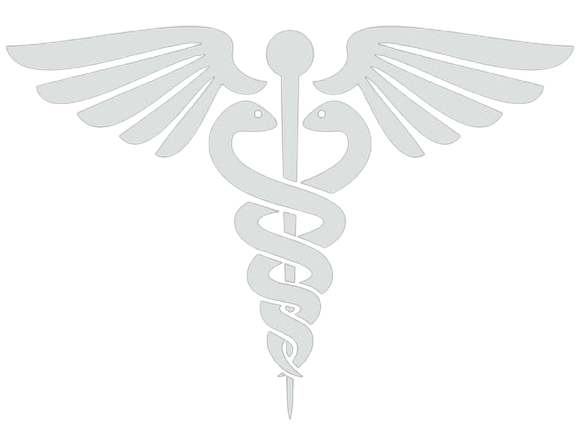Sexually Transmitted Diseases - Patient Information
Common Sexually Transmitted Diseases (STDs) and their Symptoms
Signs and symptoms may include:
- Painful urination
- Lower abdominal pain
- Vaginal discharge in women
- Discharge from the penis in men
- Pain during sexual intercourse in women
- Testicular pain in men
- Thick, cloudy/yellowish or bloody discharge from the penis or vagina
- Pain or burning sensation when urinating
- Abnormal menstrual bleeding
- Painful, swollen testicles
- Painful bowel movements
- Anal itching
Signs and symptoms may include:
- Clear, white, greenish or yellowish vaginal discharge
- Discharge from the penis
- Strong vaginal odor
- Vaginal itching or irritation
- Itching or irritation inside the penis
- Pain during sexual intercourse
- Painful urination
HIV is an infection with the human immunodeficiency virus. HIV interferes with your body’s ability to effectively fight off viruses, bacteria and fungi that cause disease, and it can lead to AIDS, a chronic, life-threatening disease.
When first infected with HIV, you may have no symptoms at all. Some people develop a flu-like illness, usually two to six weeks after being infected.
Early signs and symptoms
- Early HIV signs and symptoms may include:
- Fever
- Headache
- Sore throat
- Swollen lymph glands
- Rash
- Fatigue
As the virus continues to multiply and destroy immune cells, you may develop mild infections or chronic signs and symptoms such as:
- Swollen lymph nodes — often one of the first signs of HIV infection
- Diarrhea
- Weight loss
- Fever
- Cough and shortness of breath
Later stage HIV infection
Signs and symptoms of later stage HIV infection include:
- Persistent, unexplained fatigue
- Soaking night sweats
- Shaking chills or fever higher than 100.4 F (38 C) for several weeks
- Swelling of lymph nodes for more than three months
- Chronic diarrhoea
- Persistent headaches
- Unusual, opportunistic infections
When present, genital herpes signs and symptoms may include:
- Small, red bumps, blisters (vesicles) or open sores (ulcers) in the genital, anal and nearby areas
- Pain or itching around the genital area, buttocks and inner thighs
The initial symptom of genital herpes usually is pain or itching, beginning within a few weeks after exposure to an infected sexual partner. After several days, small, red bumps may appear. They then rupture, becoming ulcers that ooze or bleed. Eventually, scabs form and the ulcers heal.
In women, sores can erupt in the vaginal area, external genitals, buttocks, anus or cervix. In men, sores can appear on the penis, scrotum, buttocks, anus or thighs, or inside the urethra, the tube from the bladder through the penis.
While you have ulcers, it may be painful to urinate. You may also experience pain and tenderness in your genital area until the infection clears. During an initial episode, you may have flu-like signs and symptoms, such as headache, muscle aches and fever, as well as swollen lymph nodes in your groin. In some cases, the infection can be active and contagious even when sores aren’t present.
Genital Warts (HPV)
Genital warts, caused by the human papillomavirus (HPV), are one of the most common types of STDs.
The signs and symptoms of genital warts include:
- Small, flesh-colored or gray swellings in your genital area
- Several warts close together that take on a cauliflower shape
- Itching or discomfort in your genital area
- Bleeding with intercourse
Often, however, genital warts cause no symptoms. Genital warts may be as small as 1 millimeter in diameter or may multiply into large clusters.
In women, genital warts can grow on the vulva, the walls of the vagina, the area between the external genitals and the anus, and the cervix. In men, they may occur on the tip or shaft of the penis, the scrotum, or the anus. Genital warts can also develop in the mouth or throat of a person who has had oral sex with an infected person.
HPV can be prevented by taking 3 doses of GARDASIL (HPV quadrivalent vaccine) in both men & women up to age 44 years old.It prevents Genital warts, Cervical cancer, Penile & anal carcinomas.MSM are at higher risks of getting Genital warts, thus important to get vaccinated against it. Ask our doctors about this vaccination.
- Fatigue
- Nausea and vomiting
- Abdominal pain or discomfort, especially in the area of your liver on your right side beneath your lower ribs
- Loss of appetite
- Fever
- Dark urine
- Muscle or joint pain
- Itching
- Yellowing of your skin and the whites of your eyes (jaundice)
- A small, painless sore (chancre) on the part of your body where the infection was transmitted, usually your genitals, rectum, tongue or lips. A single chancre is typical, but there may be multiple sores.
- Enlarged lymph nodes.
- Rash marked by red or reddish-brown, penny-sized sores over any area of your body, including your palms and soles
- Fever
- Fatigue and a vague feeling of discomfort
- Soreness and aching
- Neurological problems. These may include stroke and infection and inflammation of the membranes and fluid surrounding the brain and spinal cord (meningitis). Other problems may include poor muscle coordination, numbness, paralysis, deafness or visual problems. Personality changes and dementia also are possible.
- Cardiovascular problems. These may include bulging (aneurysm) and inflammation of the aorta — your body’s major artery — and of other blood vessels. Syphilis may also cause valvular heart disease, such as aortic valve problems.
